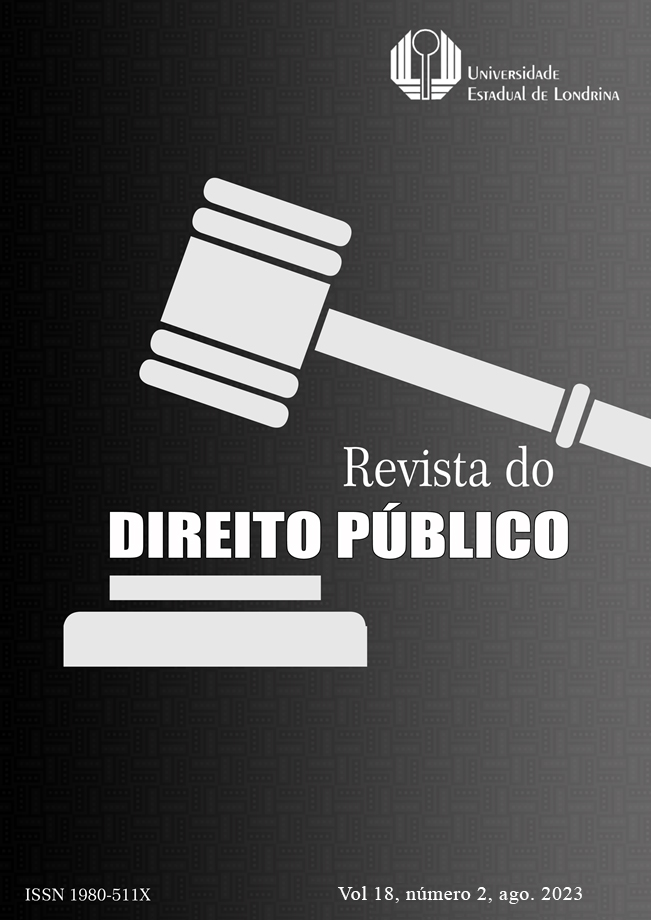New technologies and the concept of human being: a CRISPR analysis
DOI:
https://doi.org/10.5433/1980-511X.2023v18n2p140Keywords:
CRISPR; conceptual development; humanity; artificial intelligence.Abstract
Starting from the problem: Is it necessary to construct an objective concept of ‘human’ in the face of the challenges of Artificial Intelligence and gene editing that science presents to the law in the 21st century?; we problematize the idea of human presupposed by society when communicating as a society within a context in which this concept goes through a possible need for readjustment. The specific objectives are to deal with the concept of human versus artificial intelligence, and with the possibilities offered by CRISPR technology. The method used in the work is the deductive method and the proposal is developed through the technique of bibliographic research. Concluding by the confirmation of the problem-hypothesis, the work verifies the lack of a concept of human that is evidenced by the emergence of the new technologies analyzed.
Downloads
References
BLOOM, Benjamin B., et. al. The Taxonomy of Educational Objectives: Handbook I, Cognitive Domain. New York: David McKay, 1956.
BOCH, Jens, et al. Breaking the code of DNA binding specificity of TAL-type III effectors.s. Science 326, n.5959, 2009, p. 1509-1512.
BODI, Sonia; MAIER-O'SHEA, Katie. The library of Babel: Making sense of collection management in a postmodern world. The Journal of Academic Librarianship, v. 31, n. 2, 2005. p. 143-150.
FOUCAULT, Michel. História da Loucura. Tradução de José Teixeira Coelho Neto. São Paulo: Perspectiva, 2017.
GIBBS, Samuel. Facebook apologises for psychological experiments on users. The Guardian, 02/07/2014. Disponível em: <https://www.theguardian.com/technology/2014/jul/02/facebook-apologises-psychological-experiments-on-users>. Acesso em 1 jul. 2018.
GOULDNER, Alvin W. The norm of reciprocity: A preliminary statement. American sociological review, 1960. p. 161-178.
GRUBBA, Leilane Serratine. O Essencialismo nos Direitos Humanos. Florianópolis: Empório do Direito, 2016.
HERN, Alex. AI used to face-swap Hollywood stars into pornography films. The Guardian, 25/01/2018. Disponível em: <https://www.theguardian.com/technology/2018/jan/25/ai-face-swap-pornography-emma-watson-scarlett-johansson-taylor-swift-daisy-ridley-sophie-turner-maisie-williams>. Acesso em: 02 jul. 2018.
KNOEPFLER, Paul. GMO Sapiens: The Life‑Changing Science of Designer Babies. Singapura: World Scientific, 2016.
KRAMER, Adam DI; GUILLORY, Jamie E.; HANCOCK, Jeffrey T. Experimental evidence of massive-scale emotional contagion through social networks. Proceedings of the National Academy of Sciences, vol 111, n. 24. jun. 2014. p. 8788-8790.
LECUN, Yann; BENGIO, Yoshua; HINTON, Geoffrey. Deep learning. Nature 521, n. 7553. May 2015. p. 436-444.
MINSKY, Marvin. The Society of Mind. New York: Simon&Schuster, 1988.
NIETZSCHE, Friedrich. Assim Falava Zaratustra. Traduzido por Mário Ferreira dos Santos. 6. ed. Petrópolis: Vozes, 2008.
RHODEN, Humberto. O Homem. São Paulo: Martin Claret, 2000.
SANDEL, Michael. Contra a Perfeição, ética na era da engenharia genética. Traduzido por Ana Carolina Mesquita. Rio de Janeiro: Civilização Brasileira, 2013.
SCOTT, Tom. Faceswapping, Unethical Videos, and Future Shock. YouTube. Publicado em 5 de fev de 2018. Disponível em: <https://www.youtube.com/watch?v=OCLaeBAkFAY&>. Acesso em: 02 jul. 2018.
SHELLEY, Mary. Frankenstein. Hertfordshire: Wordsworth, 1999.
Downloads
Published
How to Cite
Issue
Section
License
Copyright (c) 2023 Revista do Direito Público

This work is licensed under a Creative Commons Attribution-NonCommercial-NoDerivatives 4.0 International License.
Os autores cedem à Revista do Direito Público, direitos exclusivos de primeira publicação, com o trabalho simultaneamente licenciado sob a Licença Atribuição-NãoComercial-CompartilhaIgual 4.0 Internacional. Esta licença permite que terceiros façam download e compartilhem os trabalhos em qualquer meio ou formato, desde que atribuam o devido crédito de autoria, mas sem que possam alterá-los de nenhuma forma ou utilizá-los para fins comerciais. Se você remixar, transformar ou desenvolver o material, não poderá distribuir o material modificado.












